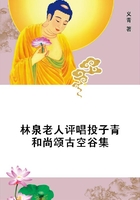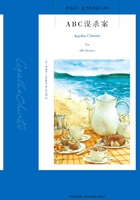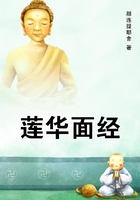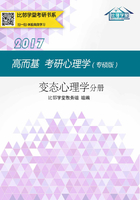There cannot be a stronger proof of the degree in which the human mind had been misdirected than the history of the two greatest events which took place during the middle ages. We speak of the invention of Gunpowder and of the invention of Printing. The dates of both are unknown. The authors of both are unknown. Nor was this because men were too rude and ignorant to value intellectual superiority. The inventor of gunpowder appears to have been contemporary with Petrarch and Boccaccio. The inventor of printing was certainly contemporary with Nicholas the Fifth, with Cosmo de' Medici, and with a crowd of distinguished scholars. But the human mind still retained that fatal bent which it had received two thousand years earlier. George of Trebisond and Marsilio Ficino would not easily have been brought to believe that the inventor of the printing-press had done more for mankind than themselves, or than those ancient writers of whom they were the enthusiastic votaries.
At length the time arrived when the barren philosophy which had, during so many ages, employed the faculties of the ablest of men, was destined to fall. It had worn many shapes. It had mingled itself with many creeds. It had survived revolutions in which empires, religions, languages, races, had perished. Driven from its ancient haunts, it had taken sanctuary in that Church which it had persecuted, and had, like the daring fiends of the poet, placed its seat "next the seat of God, And with its darkness dared affront his light."
Words, and more words, and nothing but words, had been all the fruit of all the toil of all the most renowned sages of sixty generations. But the days of this sterile exuberance were numbered.
Many causes predisposed the public mind to a change. The study of a great variety of ancient writers, though it did not give a right direction to philosophical research, did much towards destroying that blind reverence for authority which had prevailed when Aristotle ruled alone. The rise of the Florentine sect of Platonists, a sect to which belonged some of the finest minds of the fifteenth century, was not an unimportant event. The mere substitution of the Academic for the Peripatetic philosophy would indeed have done little good. But anything was better than the old habit of unreasoning servility. It was something to have a choice of tyrants. "A spark of freedom," as Gibbon has justly remarked, "was produced by this collision of adverse servitude."
Other causes might be mentioned. But it is chiefly to the great reformation of religion that we owe the great reformation of philosophy. The alliance between the Schools and the Vatican had for ages been so close that those who threw off the dominion of the Vatican could not continue to recognise the authority of the Schools. Most of the chiefs of the schism treated the Peripatetic philosophy with contempt, and spoke of Aristotle as if Aristotle had been answerable for all the dogmas of Thomas Aquinas. "Nullo apud Lutheranos philosophiam esse in pretio," was a reproach which the defenders of the Church of Rome loudly repeated, and which many of the Protestant leaders considered as a compliment.
Scarcely any text was more frequently cited by the reformers than that in which St. Paul cautions the Colossians not to let any man spoil them by philosophy. Luther, almost at the outset of his career, went so far as to declare that no man could be at once a proficient in the school of Aristotle and in that of Christ.
Zwingle, Bucer, Peter Martyr, Calvin, held similar language. In some of the Scotch universities, the Aristotelian system was discarded for that of Ramus. Thus, before the birth of Bacon, the empire of the scholastic philosophy had been shaken to its foundations. There was in the intellectual world an anarchy resembling that which in the political world often follows the overthrow of an old and deeply rooted Government. Antiquity, prescription, the sound of great names, have ceased to awe mankind. The dynasty which had reigned for ages was at an end; and the vacant throne was left to be struggled for by pretenders.
The first effect of this great revolution was, as Bacon most justly observed, [De Augmentis, Lib. i.] to give for a time an undue importance to the mere graces of style. The new breed of scholars, the Aschams and Buchanans, nourished with the finest compositions of the Augustan age, regarded with loathing the dry, crabbed, and barbarous diction of respondents and opponents. They were far less studious about the matter of their writing than about the manner. They succeeded in reforming Latinity; but they never even aspired to effect a reform in Philosophy.
At this time Bacon appeared. It is altogether incorrect to say, as has often been said, that he was the first man who rose up against the Aristotelian philosophy when in the height of his power. The authority of that philosophy had, as we have shown, received a fatal blow long before he was born. Several speculators, among whom Ramus is the best known, had recently attempted to form new sects. Bacon's own expressions about the state of public opinion in the time of Luther are clear and strong: "Accedebat," says he, "odium et contemptus, illis ipsis temporibus ortus erga Scholasticos." And again, "Scholasticorum doctrina despectui prorsus haberi coepit tanquam aspera et barbara." [Both these passages are in the first book of the De Augmentis.] The part which Bacon played in this great change was the part, not of Robespierre, but of Bonaparte. The ancient order of things had been subverted. Some bigots still cherished with devoted loyalty the remembrance of the fallen monarchy, and exerted themselves to effect a restoration. But the majority had no such feeling. Freed, yet not knowing how to use their freedom, they pursued no determinate course, and had found no leader capable of conducting them.















